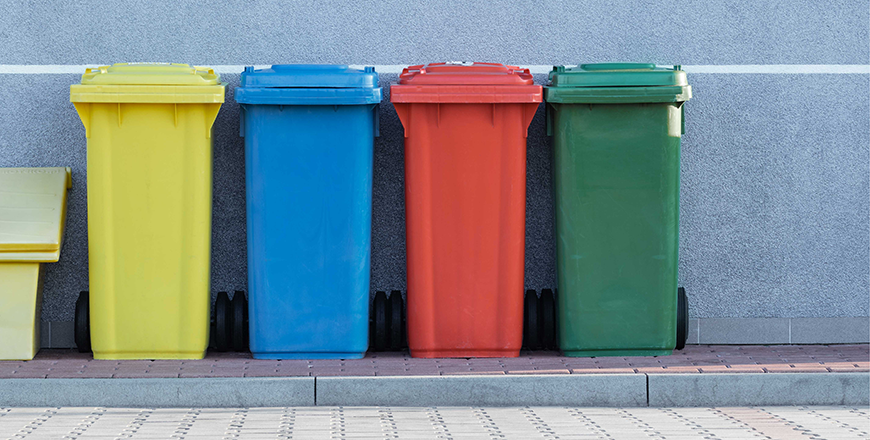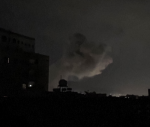You are here
One man’s trash is another man’s treasure: When a woman goes entrepreneurial
By UNDP - Dec 19,2019 - Last updated at Dec 19,2019
AMMAN — Zainab’s day begins before the break of dawn. She wakes her family, makes breakfast, sends the kids to school then spends the day caring for her husband, who has a disability. For this 44-year-old mother of four, life has been a continual struggle just to survive. Her family relied solely on government aid, and making ends meet was difficult.
“I graduated in 1995 from high school and immediately applied for a Civil Service Bureau job. I thought I would get employment quickly, but after 20 years I am still jobless, poor and unhappy.” Sorting cans on a conveyer belt, Zainab added: “I wasted 20 years of my life waiting for a job, can you believe that?”
The effect of poverty on her kids is what broke Zainab’s heart. When they would ask for money to buy candy, that simple childhood joy, she would have to answer “no”: “I would go to the supermarket and look at all the things I wanted, but couldn’t buy for my family, and feel so sad.”
Life transformed
Then Zainab made a life-changing decision that steered her future in a completely different direction. Although that step could have potentially made her lose face in her community, as sorting waste was shunned, and caused her to carry the stigma of shame in her society, it did not affect Zainab. As of March this year, she became part of an ambitious solid waste management project that altered the course of her life, and her children’s.
Zainab still wakes up very early every morning, but now she leaves to work at her new job. She is now powered with confidence about herself and her ability to create change for her family and her community. She now enjoys her financial stability and is training as an “entrepreneur in the making”. She took a bold step and subsequently, her risk was rewarded with an income, a large group of friends, a sense of community service and most importantly, hope for a better future.
Zainab is one of 60 women employed at the Northern Shouneh sorting centre. The centre is part of a larger project that aims to improve the solid waste management (SWM) in Jordan and create sustainable livelihoods for local communities, a venture carried out by the UNDP, implemented in coordination with the Ministry of Local Administration and funded by the Government of Canada.
The sorting centre serves three municipalities in Northern Shouneh (Mu’ath Bin Jabal, Tabaqet Fahel and Sharhabeel Bin Hassna), with multiple green points (Recyclables Receiving Stations – RSSs) distributed in those three municipalities to support collection of around four tonnes per day of dry recyclables from residential and commercial areas to a final sorting centre. This project is one of the applications of the Jordan National Solid Waste Management Strategy (NSWMS). It provides Jordan’s vulnerable population with sustainable SWM sector services in the three municipalities with a population of 129,000 people.
Among other interventions, the project empowers women as wage-earners, providing livelihoods for 60 women working in the solid waste sorting business. In addition, there are several capacity-building and youth initiatives implemented for hundreds within the project area population for the sorting business and SWM sector.
In addition to the sorting centre, an adjacent solid waste transfer station (TS) was constructed and supplied with machinery, which has a capacity of around 300 tonnes per day and will transfer the waste to Al Ekaider landfill, reducing the cost of transport by 20 per cent, as well as the carbon footprint. The constructed TS also receives rejected material (the refuse) from the sorting centre. The TS has also allowed the Ministry of Local Administration to close a nearby random dumping site in cooperation with the UNDP.
Empowering women to contribute to the sustainability of environmental efforts is at the heart of the UNDP’s work in Jordan. UNDP Resident Representative Sara Ferrer Olivella noted that including women in environmental impact projects was vital to their success and continuity. She said: “Women are society’s most impactful driver of change. With their active participation, we can guarantee that our ultimate goals will be met and passed on from generation to generation.”
Entrepreneurs in the making
To ensure the effectiveness of the project, 40 ladies are tasked with encouraging businesses and households in Northern Shouneh to collect solid waste, while 20 ladies are employed in the sorting centre. After the waste is categorised, it is then compressed into large cubes and stored pending sale.
Zainab beams as she describes how her community responded to her new environmentally friendly endeavour. In the beginning, she was tasked with raising awareness about solid waste among her family and neighbours in Muath Ben Jabal Municipality 85 kilometres north of Amman.
“I was very shy at the beginning. I would knock on doors and talk to men and women about the waste they could give us, and how they should leave it aside in different bags from other waste so we can collect it,” she said.
To her surprise, she would visit the same houses later and find that her neighbours actually responded. She found that people had put aside bags full of empty tuna and sardines cans, washing liquid bottles and plastic flasks for her to collect.
She pointed at the houses that she used to visit and then laughed loudly, saying: “Imagine that the very people I was scared might mock my job are now asking me how they can join as employees, even very old women wanted to come and work.”
Zainab and her colleagues receive JD220 as a monthly payment. The project, however, did not intend only to hire the ladies as solid waste collectors and sorters — it aimed to create long-term income generation for them.
To that end, half of their incentives savings were reserved in a small fund that created a Cooperative Society where they are all shareholders. The society is tasked with selling the sorted solid waste to recycling factories, while all the proceeds will be distributed amongst the shareholders.
The impact of the SWM project will continue in the future as more than 50,000 tonnes are expected to be turned into valuable resources by 2034.
Zainab now has a better view of her future. She feels even more entrepreneurial. Thanks to the education she received during the project training session, she now has the skills of accounting, marketing, project management and sales and after-sales. The mother of four feels confident that she can even open her own business.
“I dream of opening my own cleaning products shop. I am going to save some cash and maybe in the next few years I will have enough to establish a sustainable project for myself and my kids,” she said.
Also of significance is the influence the project has had on the community. The ladies serve as agents of change in a society that has traditionally been unresponsive to recycling projects. Zainab believes that she is making a further impact by saving the environment for her generation, for her kids and the future of residents in Northern Shouneh.
“You know we are really poor here. We can’t be poor and live in a polluted environment. We have to salvage the only valuable thing we now have, which is clean air and green surroundings.”
(The UNDP contributed this article to The Jordan Times)
Related Articles
AMMAN — Even after implementing a slew of policies and programmes, Solid Waste Management (SWM) remains a challenge for Jordan, according to
AMMAN — In the Kingdom, recycling efforts are relatively low-priority for citizens, as 56.7 per cent of Jordanians struggle with “fragile an
AMMAN — An agreement between the UN Development Programme (UNDP) Jordan, the Ministry of Municipal Affairs (MOMA) and the Canadian internati

















